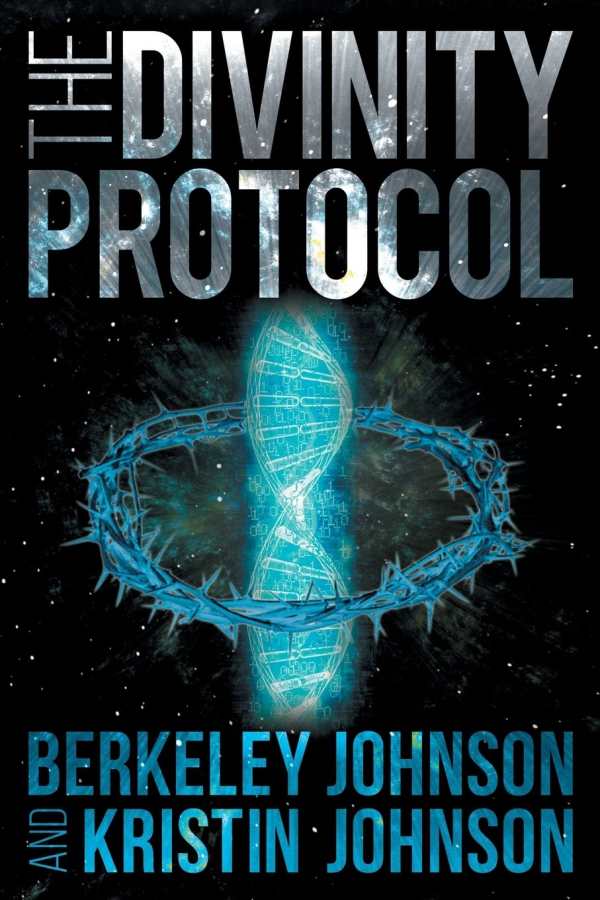The Divinity Protocol
The Divinity Protocol is thought-provoking science fiction that tackles haunting questions and works toward plausible answers.
Berkeley and Kristin Johnson’s gripping speculative novel The Divinity Protocol explores the short- and long-term consequences of a man’s determined decision to eradicate violence from the human race.
Ever since Ben Samson lost his daughter Sophia to a terrorist attack, he has acted with purpose to erase humanity’s capacity for violence and hatred. Privy to his goal are his right-hand woman, Ruth, and Jason, a former military man whose career was ruined by rape allegations.
Jason is a desperate character with a dubious moral compass, though he is loyal to his employer. He is put in charge of taking Ben’s vision from dream to reality. In order to accomplish this, he hires several teams of experts from a wide variety of fields and sets them to work. But what happens when they get to know too much? And what happens once Ben’s goal is realized?
The Divinity Protocol is heavily plot driven. The story revolves around the completion of Samson’s plan, from the start of the teams’ research to the long-term consequences of their success. It explores how one event (Sophia Samson’s murder) can ricochet, having global ripple effects.
The attention to detail is outstanding. Very few knots, if any, are left untied. There is a large cast of characters, but all of their fates are clear by the time the book wraps up.
Conversely, there is little to no evolution with the characters—who they are at the beginning is who they are at the end. They are merely vessels within the story. Building from a central hypothesis, the story progresses in a solid but detached manner: there are actions and reactions, with muted emotional resonance. Characters are not naturally expressive; they tend to channel their emotions into their work or ignore them altogether. The nature of their work, though, means that the text still inspires audience emotions—often intense, often negative.
The plot is all about the project, which means that there is a lot of scientific talk, with terms that laypeople might find hard to follow. The same is true of the book’s religious discussions: direct quotes from foundational texts require either a knowledge of religious tenets or trust in the narrative. All of the text’s explanations seem organic.
The Divinity Protocol is thought-provoking science fiction that tackles haunting questions and works toward plausible answers. Whether its answers are positive or negative remains open to interpretation.
Reviewed by
Carolina Ciucci
Disclosure: This article is not an endorsement, but a review. The publisher of this book provided free copies of the book and paid a small fee to have their book reviewed by a professional reviewer. Foreword Reviews and Clarion Reviews make no guarantee that the publisher will receive a positive review. Foreword Magazine, Inc. is disclosing this in accordance with the Federal Trade Commission’s 16 CFR, Part 255.

